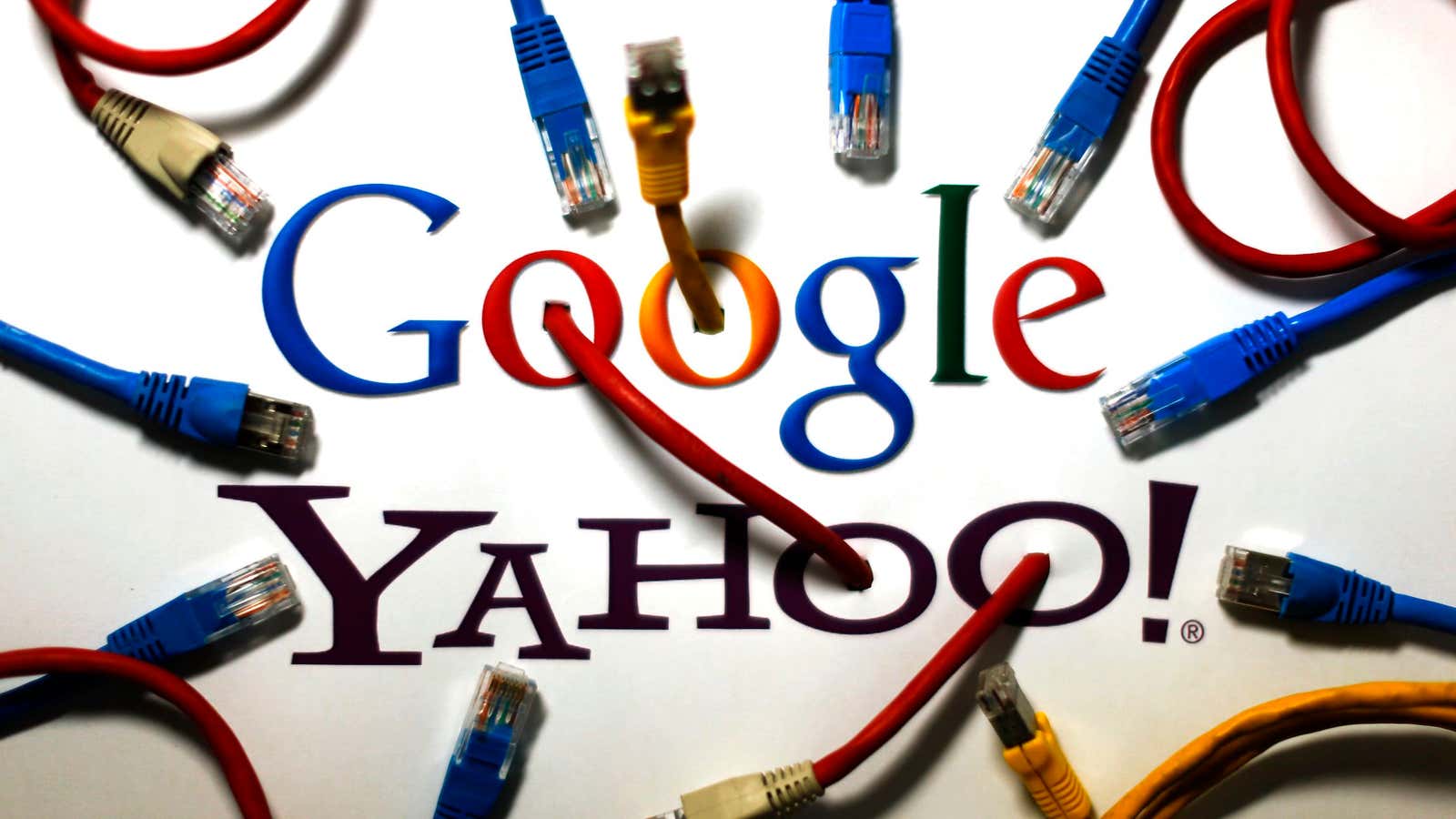In France, there’s a new word: GAFA. It’s an acronym, and it has become a shorthand term for some of the most powerful companies in the world—all American, all tech giants. GAFA stands for Google, Apple, Facebook, and Amazon.
The phrase is used by newspapers, blogs, and talking heads on TV—see here and here and here (all links in French). It even appears in the local version of “The Internet for Dummies.” Le Monde’s economics editor, Alexis Delcambre, tells Quartz that GAFA first appeared in his newspaper in December 2012. ”GAFA is not used very often, but when used, it is almost always on critical topics, including taxes or personal data,” he says.
In the US, Google, Apple, Facebook, and Amazon are generally praised as examples of innovation. In the French press, and for much of the rest of Europe, their innovation is often seen in a less positive light—the ugly Americans coming over with innovative approaches to invading personal privacy or new ways to avoid paying their fair share. Take Google: its tax affairs in France are being challenged (paywall)—which comes soon after it has been forced to institute a “right to be forgotten” and threatened with being broken up.
But the spread of the term “GAFA” may be as much to do with cultural resentment as taxes. “I think it’s more about distribution of power in the online world than tax avoidance,” Liam Boogar, founder of the French start-up site, Rude Baguette, tells Quartz. France, after all, is a country with a long history of resisting US cultural hegemony.
Remember José Bové, the sheep farmer who destroyed a McDonald’s in 1999 and was a symbol for the anti-globalization movement? Times have changed; McDonald’s most profitable country in Europe is now France. Having lost that battle, the French have instead turned their ire to Silicon Valley.
There is also a loss of public sympathy in the wake of the massive American government spying revelations. Jérémie Zimmermann, one of the founders of La Quadrature, a tech-oriented public policy non-profit, tells Quartz he dislikes the term “GAFA” and prefers to refer to the big US firms as the “PRISM” companies (after the US National Security Agency program revealed by Edward Snowden) or the “Bullrun” firms (another NSA program), which he uses to refer to ”more or less every US-based company in which trust is broken”—citing examples that include Intel, Motorola, and Cisco.
Even if the term has a negative connotation, it’s worth noting which companies didn’t make the acronym. Microsoft, most notably. Samsung is another. No Yahoo.
Google, Apple, Facebook, and Amazon pretty much dominate every facet of our lives—from email from friends and family to what’s in your pocket to how you get everything in your house to how you pay. As far as acronyms of global power go, it works.
